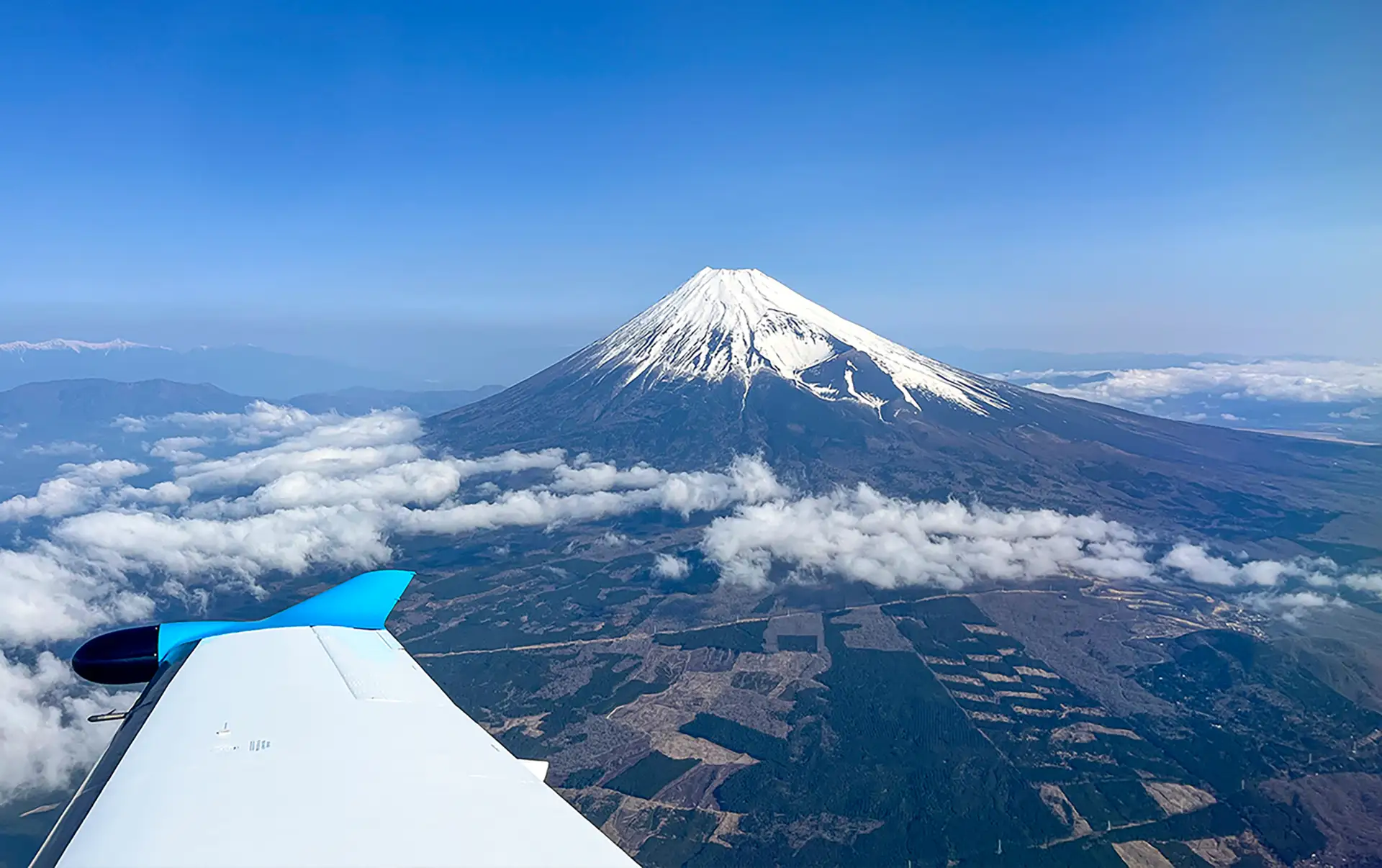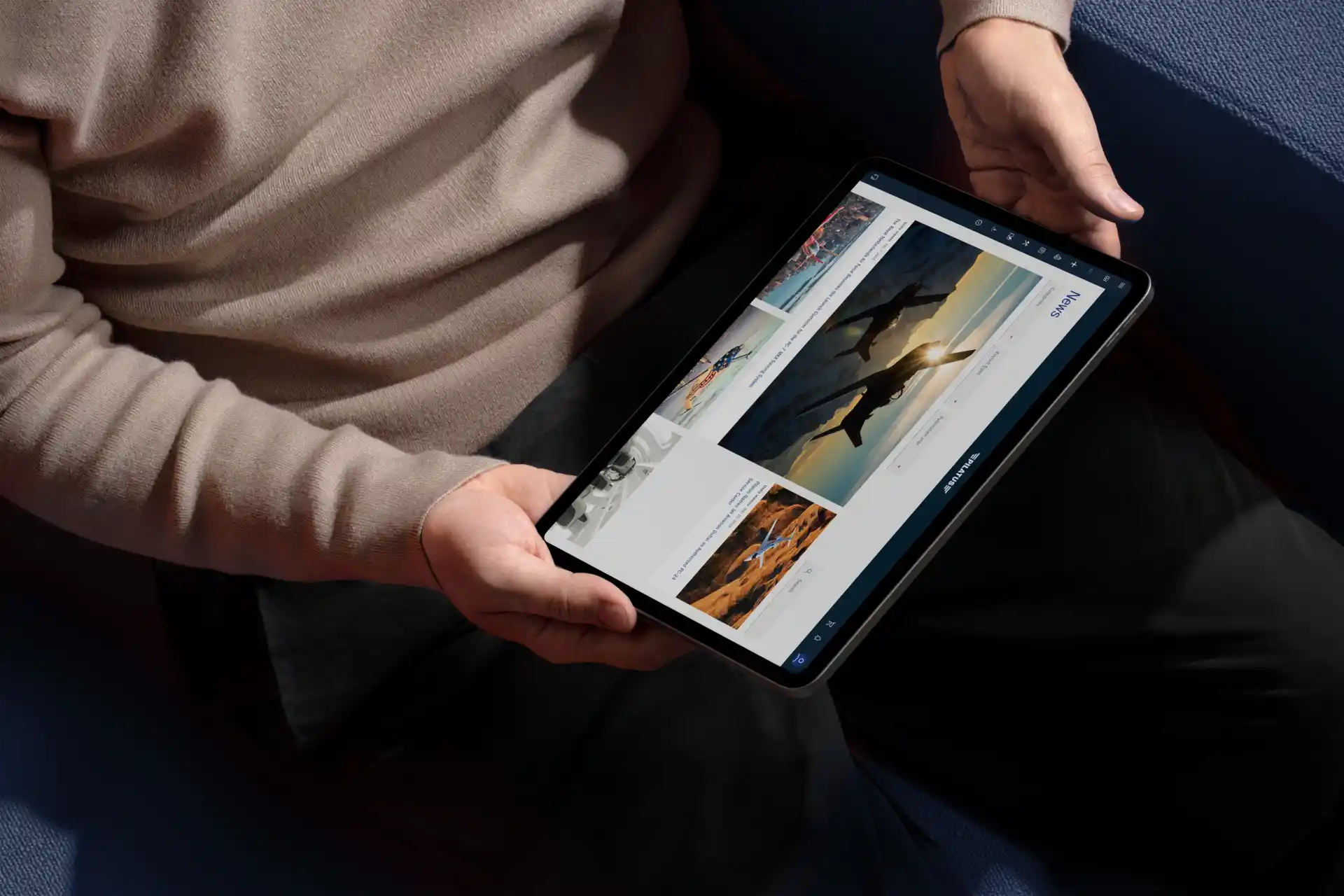The production hangars at Pilatus were bustling with activity a year ago when two aircraft with striking special paint schemes caused curiosity in visitors and employees alike. Over the intervening period, an unusual factory project has developed into a groundbreaking business idea that is now taking off in the Japanese market.
The Japanese market, with its potential for turboprops and light jets, is at the heart of an ambitious vision crafted by OpenSky. At the forefront of this endeavor is OpenSky founder and CEO Shigeto Honda, who aims to develop the market in private and business travel, making it more accessible to a wider public. Under this model, private individuals and companies are offered fractional ownership of the fleet’s aircraft, which allows them to use the aircraft for their own travels. OpenSky focuses on using short runways to get their clientele closer to their desired destination while avoiding the larger airports usually dominated by commercial airlines.
One of OpenSky’s main goals is to facilitate the use of private and business aircraft, especially on routes that are currently underserved or not served at all – like the 1,666 kilometres / 900 nautical miles route from Tokyo to Naha. Pilatus aircraft, and the single-engine PC-12 in particular, make low-cost trips possible. The most recent market data point to a probable six percent increase in Japan, indicating the enormous potential for OpenSky to target.
Honda relies on Pilatus to support his business idea
Honda’s journey into the world of air charter began in 2018, when he offered high net worth individuals and companies a smaller jet under a new aircraft management service. He focused on destinations which were not served by regional airlines, but were popular with business customers – such as remote islands which are difficult to reach due to long travel times. His idea proved a great success and Honda quickly recognized the need to expand his fleet. From that point on, he opted for two well-known products from Pilatus – the PC-12 and the PC-24.
Promoting these aircraft in Japan without them actually being available on the ground was a major challenge. Potential investors hesitated to channel funds into what they saw as a risky start-up with a relatively short track record. But Honda was not discouraged; he persevered in his project, drawing on his determination and experience as a professional aerobatic pilot. The turning point came in late 2020, when a trip to Stans led to the signing of two contracts, one for a PC-12 and one for a PC-24. That trip also attracted the support of a serious investor and marked the beginning of an exciting new chapter for OpenSky.
Goals and challenges Looking to the future, OpenSky aims to continue its expansion. It is currently exploring opportunities to offer medevac flights within Japan and neighboring regions such as South Korea, Taiwan and China. The route between Tokyo and Shanghai in particular is already attracting great interest and numerous enquiries. One of the major challenges facing OpenSky is the current restriction on operating scheduled flights with single-engine turboprops in Japan. Although Honda does not see scheduled flights as an immediate next step for OpenSky, he believes it could be an interesting prospect in the future.
Summing up, OpenSky is a leader in sustainable air transport to remote regions in Japan and beyond. Driven by a pioneering vision and relentless determination, Shigeto Honda and his team are redefining the aviation landscape, making air travel more accessible and more efficient. With every successful flight, OpenSky opens up new horizons and points the way to a more connected future – with the support of Pilatus aircraft!
Eye-catching Designs
The paint schemes for the two OpenSky aircraft were designed by a Japanese company. The sky offers endless inspiration, and so the two aircraft are styled to depict a sunrise and a sunset.

